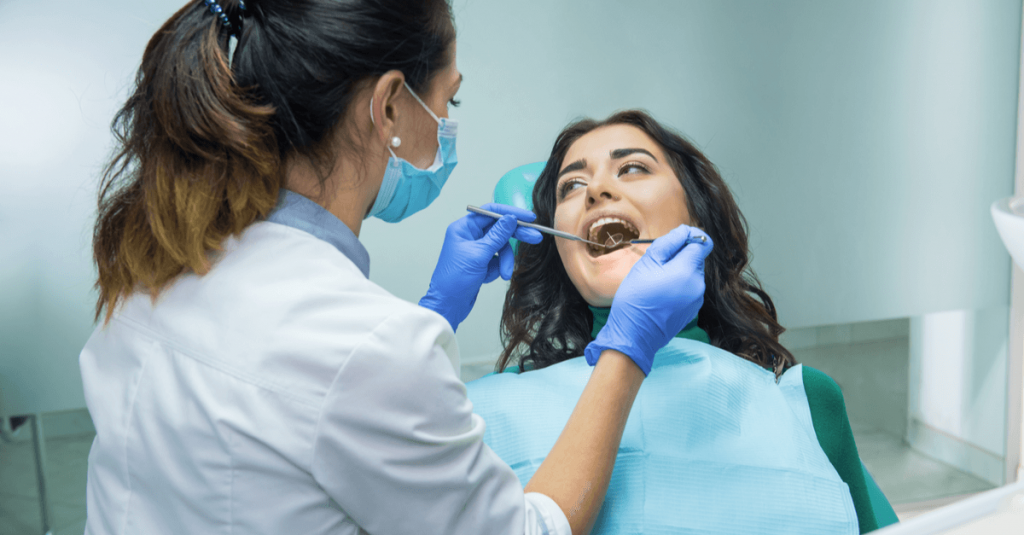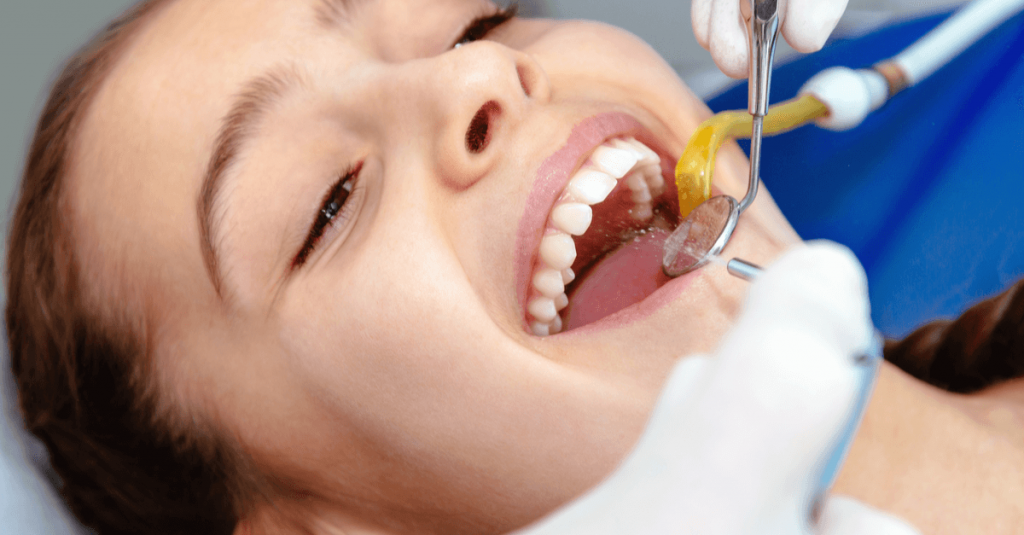Let’s face it; a dental visit isn’t always a positive experience for children and adults alike. A bright and inviting dental clinic isn’t often enough to calm patients, therefore, many people endure toothaches and delay making dental appointments.
The risk of neglecting your oral health
 Going for an oral health check is as crucial as undergoing a physical exam every year to maintain a healthy lifestyle. Ideally, it would help if you visited your dentist every six months to assess the condition of your teeth and gums.
Going for an oral health check is as crucial as undergoing a physical exam every year to maintain a healthy lifestyle. Ideally, it would help if you visited your dentist every six months to assess the condition of your teeth and gums.
Regular dental clinic visits can prevent tooth decay, improve your smile, and stop gum disease. Good oral health care comes with higher self-confidence and additional savings on future dental treatments.
On the other hand, refusing to get oral health checks can put your health at significant risk. Studies show that poor oral hygiene can increase the risk of heart disease, diabetes, and even cancer.
Brushing your teeth regularly is good practice. But it’s not always enough to keep your teeth and gums healthy. An appropriately qualified health practitioner such as a dentist can perform a thorough oral health check, provide advice on taking better care of your teeth, and discuss if you need dental services like dental implants, wisdom tooth removal, or other procedures.
Simple tooth extraction in Ashgrove vs. surgical wisdom tooth extraction in Ashgrove
Tooth extraction procedures can be non-invasive or invasive. The non-invasive tooth extraction, also known as simple tooth extraction, involves the removal of a tooth above a gumline. General dentists perform this.
A surgical or invasive procedure, on the other hand, is the removal of a tooth below a gumline. It requires the expertise of an oral surgeon to remove an impacted wisdom tooth or severely damaged tooth that cannot be taken out through simple tooth extraction. This procedure makes an incision in the gum tissues to expose the tooth and bone.
Both procedures are done with anaesthesia.
Emergency tooth extraction In Ashgrove
The tooth had to be immediately removed within 24 to 48 hours in some situations. This is called emergency tooth extraction and is applicable in cases like severe tooth decay, massive cracks, impacted wisdom teeth, and other scenarios that may put a patient’s health at risk.
The dental code of practice dictates that a dental practitioner must decide on treatment options based on sound clinical evidence. It’s your dentist’s responsibility to discuss your options and what to expect before, during, and after a procedure to prepare you mentally and emotionally.
What to expect before a wisdom tooth extraction
Impacted wisdom teeth are the most common reasons for oral surgery. The thought of undergoing wisdom tooth removal creates a lot of stress and fear because patients don’t know what to expect most of the time.
Choosing a dentist you can trust and who has a lot of experience in the field is critical in establishing a patient and healthcare practitioner relationship.
The difficulty of the tooth extraction procedure depends on the shape and position of the tooth. Typically, your dentist will schedule you for a dental X-ray or panoramic imaging before the extraction.
During the consultation, your dentist will lay out the treatment plan and explain how the procedure is done, what you can and cannot do after the extraction, the time it takes to recover, the type of anaesthesia to administer, etc.
Your dentist will also inquire about your medical history to assess potential risks and avoid complications.
Take advantage of the opportunity to ask and seek clarification. Don’t be shy; ask the hardest and even the silliest questions if it will help relieve any anxiety or all worries you have about getting a tooth removed.
Anaesthesia options in wisdom tooth extraction
 Wisdom tooth extraction is generally painless because you will be given anaesthesia.
Wisdom tooth extraction is generally painless because you will be given anaesthesia.
In simple wisdom tooth extraction cases, local anaesthesia is applied to numb the area. This type of anaesthesia is either injected or applied as liquid or gel.
With dental sedation, patients may still have some clear recollection of what has taken place before and after the procedure but may remember very little of the actual surgery.
As for general anaesthesia, which is rarely administered in wisdom tooth extraction, the patient will be completely unconscious during the entire procedure.
Post-procedure recovery
It’s expected to experience discomfort after the procedure, especially once the anaesthesia wears out. Your dentist will provide aftercare instructions and prescribe medications to manage pain. It’s essential to follow the recovery plan to avoid infection or postoperative complications.
In the first day or two following the procedure, you’d be recommended a soft diet and prohibited from using a straw when drinking, rinsing your mouth, brushing your teeth, or spitting. This is to avoid dislodging the blood clot that could lead to a dry socket.
Moreover, you may be instructed to avoid intense workouts or lifting heavy objects for safety measures.
Your dentist will schedule you for your next visit to check if you’re healing well.
Wisdom tooth extraction costs in Ashgrove.
The cost of tooth extraction in Ashgrove varies. A simple tooth extraction cost in Ashgrove is usually cheaper than a surgical tooth extraction cost in Ashgrove because the latter requires different expertise and is more complex.
However, this shouldn’t deter you from seeking dental treatments. Cheap tooth extraction in Ashgrove is widely available in the area, so there’s no reason to endure wisdom tooth pain or avoid wisdom teeth removal.
We encourage you to book an appointment online with us so we can assess your situation and discuss treatment options. Our consultation is free, and you’re not tied with the obligation to seek treatment in any form.

